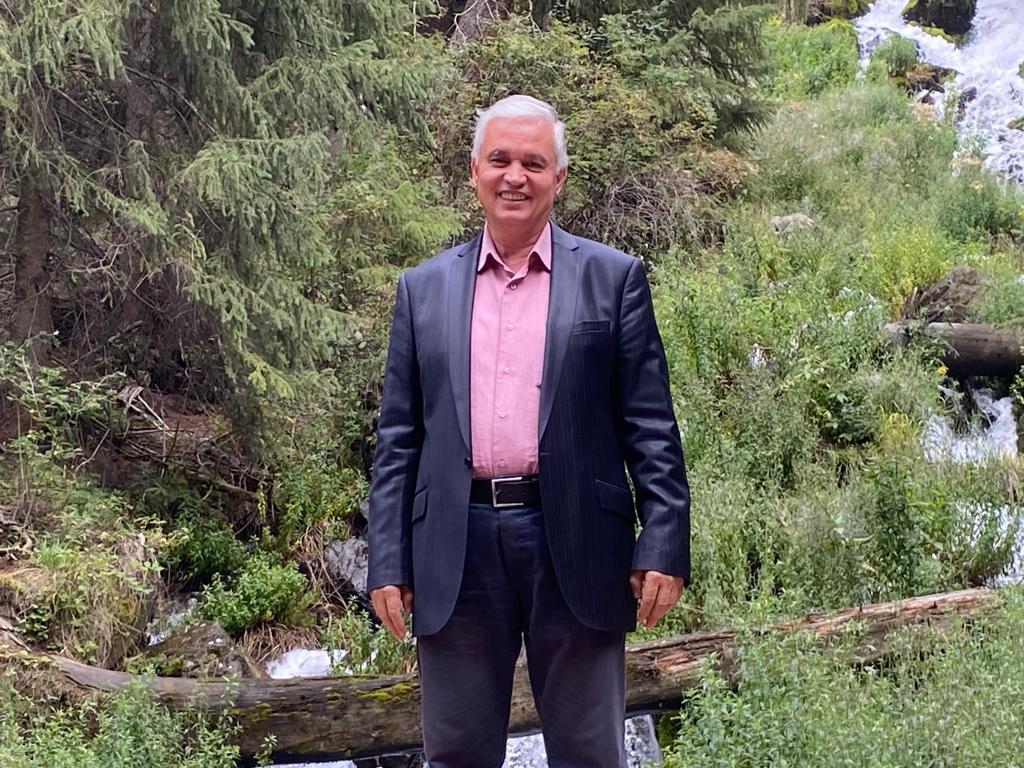RADIO HABANA CUBA
www.radiohc.cu
Interview with the Secretary of the Central Committee of the Communist Party of Tajikistan, Jamshed Sabirovich Yunusov
“For decades, Cuba has remained a country that has not bowed its head to the United States. Its courageous people steadfastly endure all the restrictions imposed on them by capitalist countries led by the United States…”
Dear Secretary, yours is an outstanding country, both for its culture and for the strategic role it is playing, particularly in Central Asia, another region considered to be of fundamental importance. However, very little is read about Tajikistan in the Western media, except for the occasional news item referring to unfortunate events.
For more than sixty years, the United States has imposed an economic blockade on Cuba. Not much is written about this in the media either, but these sanctions, which have been in place for decades, impose suffering and harsh deprivation on the Cuban people.
How do you and the Party you represent view the economic blockade imposed on Cuba and, in general, this form of foreign policy pursued by certain countries?
It should be noted that at present, i.e., in the era of globalization, there has been a trend toward the establishment of a unipolar world, where the United States and its satellites have dictated the terms of their worldview and world order for a long time.
During the Soviet era, parity was established between different countries, meaning that the world was divided into capitalist, socialist, and developing countries. A struggle between two ideologies, capitalism and socialism, took hold in the world, with socialism influencing the social policies of capitalist states to a certain extent. Nowhere else in the world was there such social protection as in the USSR, because there was no unemployment, free housing, education, and medical care. Soviet society was a highly cultured society, where newspapers, magazines, and books were printed in millions of copies. The USSR was the most literate country in the world.
The capitalist world competed with the USSR in social policy in order to create an attractive image of the world of capital, and in this endeavor they conducted anti-Soviet propaganda, extolling the values of the capitalist world.
Economic sanctions were imposed on those countries that did not share the values of the capitalist world.
One such country was Cuba, which we Soviet people knew as the “Island of Freedom.” For decades, Cuba has remained a country that has not bowed its head to the United States. Its courageous people steadfastly endure all the restrictions imposed on them by capitalist countries led by the United States.
After the collapse of the USSR, the US hoped that the ideals of the Cuban Revolution would suffer a crushing defeat, but the Cuban people persevered and continue to fight for their choice and their freedom, which is truly admirable.
Of course, after the collapse of the USSR, communist ideas and the construction of a socialist state became unpopular on the world stage, but nevertheless, socialism proves its right to exist on a daily basis, not only in Cuba, but also in other countries such as China, Vietnam, Venezuela, and Nicaragua.
It must be said that the US and its allies are working together against those states which they consider to be their enemies. They are pursuing an aggressive policy against these states and imposing sanctions in order to strangle them economically and turn the people against their leaders.
One such country is Cuba, which has learned to live under these sanctions. This situation is regrettable, because the people are forced to endure suffering and deprivation due to the great imperial ambitions of the United States. We can only sympathize with the people of Cuba, but we must not forget the nature and essence of the world of capital, which Karl Marx clearly described in his work Capital. In pursuit of super profits, capitalists will stop at nothing, which is what the US is doing today.
Cuba and Tajikistan have roughly similar land areas and populations. Both countries have their own national strengths in various sectors: education, science, agriculture, industry, tourism, etc.
What aspects of bilateral cooperation do you consider particularly useful and feasible to develop, and what specific projects would you and your Party like to promote?
Overall, we are similar, of course, but I would like to note that our countries are very far apart geographically. I remember that in the late 1980s, guests from Cuba came to visit us in Dushanbe. At that time, I was working as the head of the ideological department of the Dushanbe City Committee of the Komsomol. We prepared an extensive program for our Cuban friends and also had a meeting with labor collectives.
I particularly remember a meeting at one of the collective farms, where our Cuban friends learned about the crops grown in Tajikistan. They were especially impressed by our apple orchards, with red and yellow ripe fruits hanging from the branches. Our friends asked about the price of apples, and when they converted it into their currency, it turned out that a kilogram of apples cost about 50 cents. This was very cheap from their point of view.
I think we have many areas for cooperation, but Tajikistan, unlike Cuba, does not have access to the sea, and we are too far apart to implement any business projects.
At first, I think that cooperation can be established in the humanitarian sphere, through the exchange of information and professional correspondence between our parties, and gradually, I think it will be possible to move on to the next level of joint activity. Time will show us which path to take next. I hope for fruitful cooperation.
This interview was conducted by the journalist and observer of international cooperation, Pietro Fiocchi.
Special thanks to Pietro for his collaboration with Radio Havana Cuba!!

